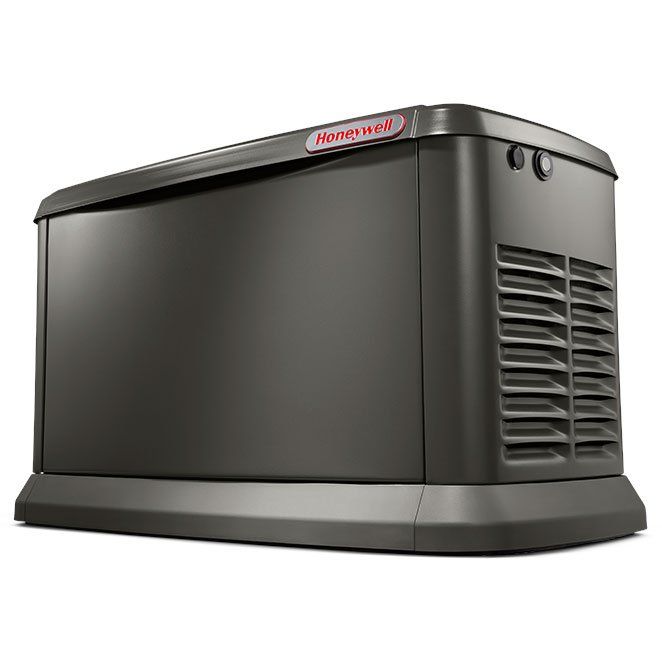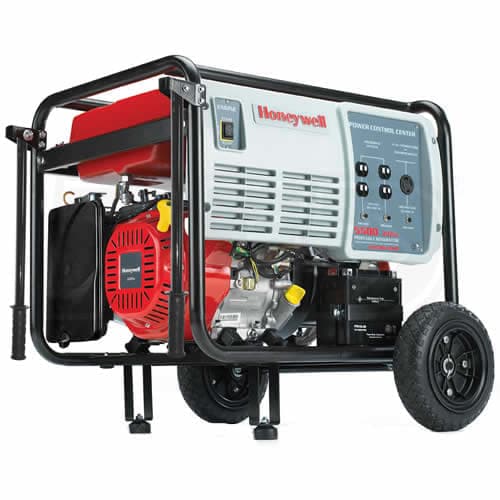Call Today! 252-745-5135
Blog
Blog
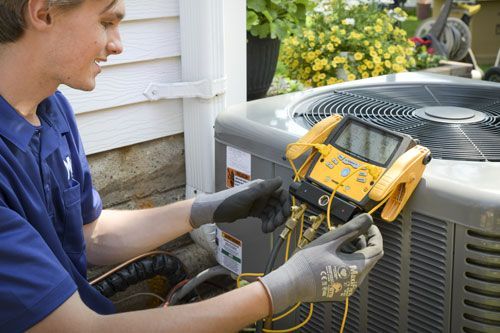
October 26, 2023
As the summer heat in New Bern, NC begins to wane, and the leaves start changing their colors, it's a sure sign that fall is just around the corner. With the seasonal shift, it's time to prepare your HVAC (Heating, Ventilation, and Air Conditioning) system for the upcoming cooler months. Proper fall maintenance ensures your home remains comfortable and energy-efficient during the fall season. In this blog, the Scott Plumbing & Heating team, your trusted HVAC contractor in New Bern, NC, will provide a comprehensive guide on how to prepare your HVAC system for the fall season. Replace or Clean Air Filters Start your fall HVAC maintenance by inspecting and replacing or cleaning your air filters. Clogged filters restrict airflow, making your system work harder and less efficiently. This simple task can significantly improve your system's performance and indoor air quality. Check for Air Leaks Inspect your home for air leaks, especially around windows and doors. Seal any gaps with weatherstripping or caulk to prevent warm air from escaping and cold drafts from entering your home. Clean Air Ducts and Vents Consider scheduling a professional HVAC technician to inspect and clean your air ducts. Clean vents and registers ensure that heated air is distributed evenly throughout your home. Inspect Thermostat Settings Check your thermostat settings to ensure they are appropriate for the fall season. A programmable or smart thermostat can help you optimize your heating schedule and save on energy costs. Check out our thermostat product page to learn more about some of the programmable and smart thermostats we carry and install here at Scott Plumbing & Heating Co! Schedule a Fall HVAC Tune-Up Reach out to a certified HVAC technician to schedule a professional fall maintenance check. The technician will inspect your system, clean key components, lubricate moving parts, and address any necessary repairs to ensure the optimal operation of your system. Give the Scott Plumbing & Heating team a call today to schedule your next maintenance service appointment! Proper fall HVAC maintenance is a critical step in ensuring that your system operates efficiently, your home stays comfortable, and you save on energy costs during the chilly fall and winter months. By following these steps and scheduling a professional HVAC checkup, you'll not only enhance your system's performance but also extend its lifespan. If you have any questions or need assistance with fall HVAC maintenance, don't hesitate to contact us here at Scott Plumbing & Heating Co, your trusted HVAC contractor in New Bern, NC. We're here to keep your home cozy and energy-efficient year-round.
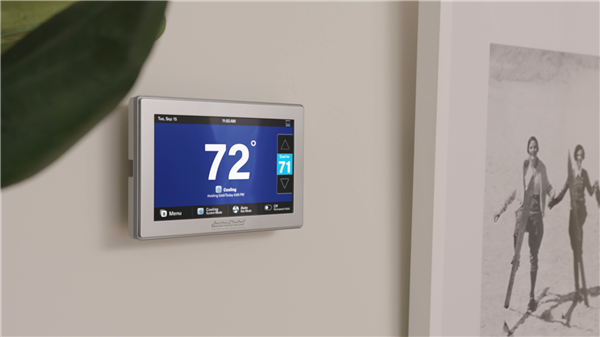
September 26, 2023
When it comes to home comfort and energy efficiency, the unsung hero of your HVAC system is often the thermostat. This small device plays a crucial role in regulating the temperature of your New Bern, NC home, ensuring you stay comfortable while managing your energy consumption. As HVAC contractors with years of experience, the Scott Plumbing & Heating Co delve into the significance of thermostats in your HVAC system and how choosing the right one can make a substantial difference. Understanding the Basics: What Does a Thermostat Do? At its core, a thermostat is a temperature control device that communicates with your heating, ventilation, and air conditioning (HVAC) system to maintain the desired indoor temperature. It achieves this by monitoring the current temperature and comparing it to your preset temperature settings. Here's How it Works: Sensing Temperature: The thermostat contains a temperature sensor that measures the current temperature in your home. Setting Temperature: You, the homeowner, set the desired temperature on the thermostat. For example, you might set it to 72°F for a comfortable indoor climate. Control Signals: When the temperature deviates from your set point, the thermostat sends signals to your HVAC system. If it's too warm, it will signal the air conditioner to turn on, and if it's too cold, it will signal the heater to start. Maintaining Temperature: The HVAC system kicks into action, working to bring the temperature back to your desired setting. Once it achieves this, the system will turn off until needed again. Types of Thermostats: Manual Thermostats: These are basic thermostats that require manual adjustment. You set the temperature by turning a dial or pressing buttons. Programmable Thermostats: Programmable thermostats allow you to schedule temperature changes throughout the day. For example, you can set it to lower the temperature while you're at work and raise it before you return home, optimizing energy usage. Smart Thermostats: Smart thermostats are the latest innovation in temperature control. They connect to Wi-Fi and can be controlled remotely via smartphone apps. They often feature learning capabilities, adapting to your schedule and preferences to maximize energy savings. The Benefits of a Well-Chosen Thermostat: Energy Efficiency: A properly programmed thermostat can lead to significant energy savings by ensuring your HVAC system operates only when needed. It prevents unnecessary cooling or heating, reducing energy consumption and utility bills. Comfort Control: Thermostats offer precise control over your indoor environment, allowing you to maintain a consistent and comfortable temperature throughout the day and night. Remote Access: Smart thermostats provide the convenience of adjusting your home's temperature from anywhere, offering flexibility and control even when you're away. Learning and Adaptation: Some smart thermostats learn your heating and cooling patterns, automatically adjusting settings to maximize comfort and efficiency. In summary, the thermostat is the heart of your HVAC system, regulating temperature and energy usage. Choosing the right thermostat for your needs and habits can have a significant impact on your comfort, energy efficiency, and utility bills. If you're considering upgrading your thermostat or need guidance on selecting the best one for your HVAC system, our team of experts is here to help. Contact us today to learn more about thermostat options and make the most of your HVAC system. To learn about some of the thermostats we carry and install here at Scott Plumbing & Heating Co, check out our thermostat product page!
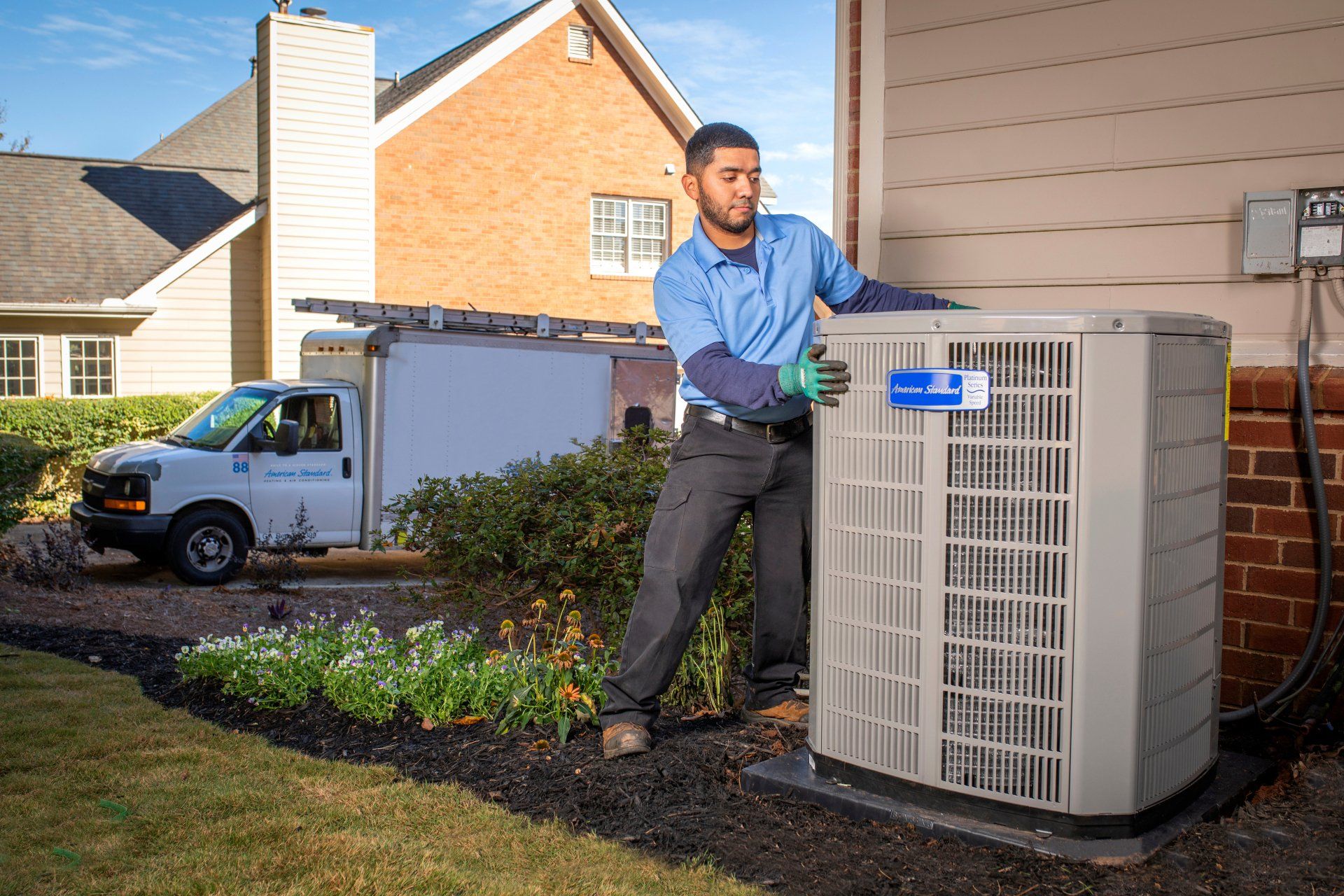
August 29, 2023
When it comes to creating a comfortable haven from the sweltering heat, the right air conditioner can make all the difference. But with a multitude of options available, how do you choose the perfect fit for your home? In this guide, brought to you by Scott Plumbing & Heating Co, we'll walk you through the key factors to consider when selecting an air conditioner. From understanding different types of systems to sizing your AC correctly, we've got you covered every step of the way. Types of Air Conditioning Systems There's no one-size-fits-all solution when it comes to air conditioning. We'll break down the various types, including central air conditioning, ductless mini-splits, and window units, explaining the pros and cons of each to help you determine which aligns best with your home's layout and cooling needs. Check out some of the air conditioners we carry and install on our products page today! Cooling Capacity and Sizing Selecting the right size AC unit is crucial for optimal performance. We'll guide you through the importance of cooling capacity, explaining how an oversized or undersized system can impact your comfort, energy efficiency, and even your budget. Energy Efficiency and SEER Ratings With energy costs on the rise, an energy-efficient air conditioner is a wise investment. We'll introduce you to SEER (Seasonal Energy Efficiency Ratio) ratings, decoding what those numbers mean and how they impact your AC's efficiency and operating costs. Installation and Maintenance Installing and maintaining an AC system is just as important as selecting the right one. We'll provide guidance on finding a reputable HVAC contractor, scheduling professional installation, and the benefits of routine maintenance for extending your AC's lifespan. Selecting the perfect air conditioner for your home doesn't have to be a daunting task. Armed with knowledge about different types of systems, sizing considerations, energy efficiency, and additional features, you can make an informed decision that keeps your home cool, comfortable, and efficient. For personalized guidance and professional installation, reach out to the experts at Scott Plumbing & Heating Co. We're here to ensure your New Bern, NC indoor oasis remains refreshingly cool, no matter how high the mercury climbs. Stay cool, stay comfortable!
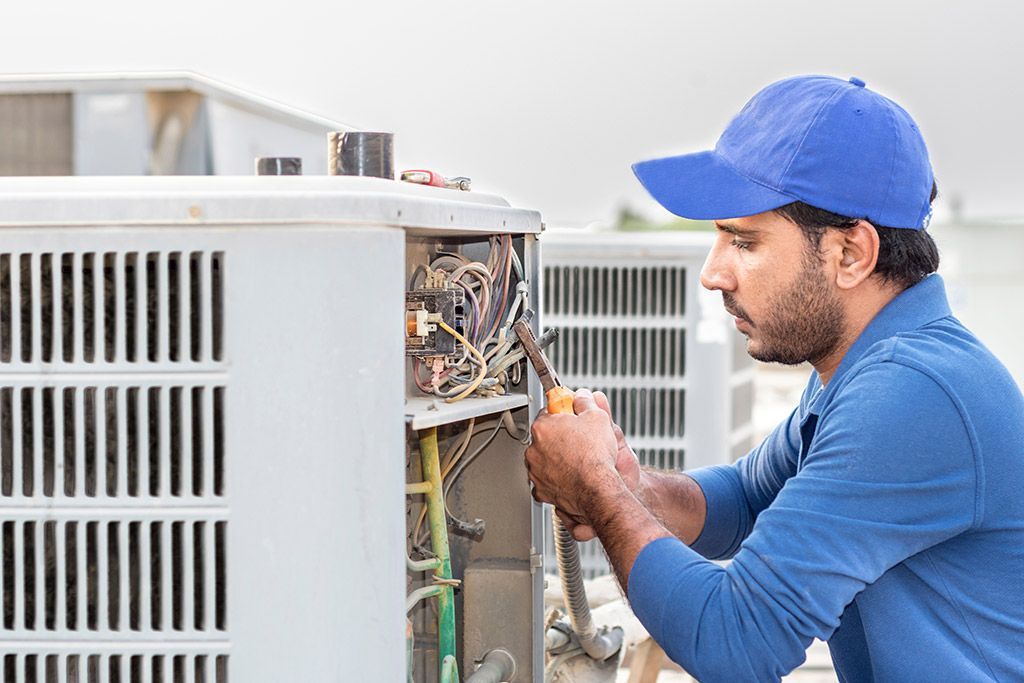
July 24, 2023
Summers here in New Bern, NC can be sweltering hot, and keeping your home cool becomes a top priority. However, achieving a comfortable indoor environment doesn't have to come at the cost of soaring energy bills. In this blog, the Scott Plumbing & Heating Co team will explore practical and efficient ways to cool your New Bern home during the summer months, ensuring you stay refreshed without wasting energy. Seal Air Leaks Inspect your New Bern, NC home for any air leaks around doors, windows, and vents. Seal these gaps with weatherstripping or caulk to prevent warm outdoor air from infiltrating your cool indoor spaces, improving the efficiency of your cooling system. Proper insulation in your home will keep the cold air inside and prevent the warm air from entering this summer. Programmable Thermostat Invest in a programmable thermostat to control your cooling system more efficiently. Set higher temperatures when you're away from home or asleep, and program it to lower the temperature before you return or wake up. This way, you can enjoy comfort when you need it most while saving energy during off-peak hours. To learn about some of the programmable and smart thermostats we carry here at Scott Plumbing & Heating Co, check out our thermostat product page. Energy Efficient Air Conditioners If you're considering upgrading your cooling system, opt for energy-efficient models with high SEER ratings. Energy Star certified air conditioners can significantly reduce your energy consumption while maintaining optimal cooling performance. We are proud to provide energy efficient air conditioning units to our customers here in New Bern, NC. Keeping your New Bern home cool and comfortable during the summer doesn't have to be an energy-draining task. By implementing these efficient cooling tips, you can enjoy a refreshing indoor environment while saving on energy costs. Embrace these practices, and you'll not only beat the summer heat but also contribute to a more sustainable and environmentally-friendly lifestyle. Stay cool, stay energy-efficient, and make the most of the summer season in New Bern, NC! To schedule your next air conditioning service appointment, give the Scott Plumbing & Heating Co a call today!
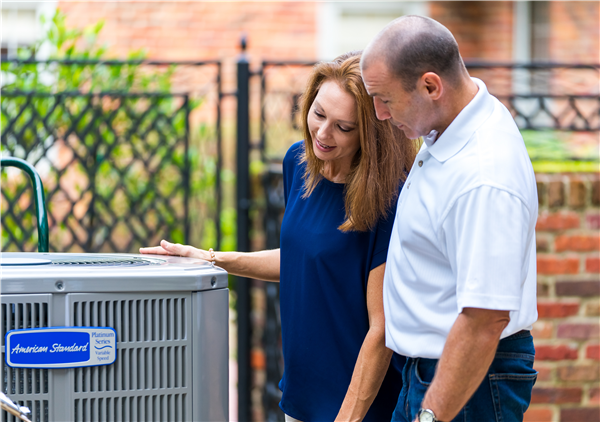
June 23, 2023
As the summer heat intensifies here in New Bern, NC, having a reliable air conditioning system becomes crucial for maintaining a comfortable home environment. If the time has come to replace your aging AC unit, it's natural to wonder what to expect from the process. Fortunately, by understanding the key steps involved, you can approach the AC replacement with confidence. In this article, the Scott Plumbing & Heating Co team will guide you through what to anticipate when replacing your AC unit in New Bern, NC. Initial Assessment The first step in replacing your AC unit is to have an HVAC professional from the Scott Plumbing & Heating Co team conduct an assessment of your current system. One of our technicians will evaluate your existing unit, examine its performance, and take note of any specific requirements or challenges unique to your home. This assessment helps determine the appropriate replacement options for your specific needs. Selecting the Right AC Unit After evaluating your current system, one of our HVAC technicians will assist you in selecting the right AC unit for your New Bern, NC home. They will consider factors such as cooling capacity, energy efficiency ratings (SEER rating), noise levels, and any additional features you may desire, such as programmable thermostats or air purifiers. Our technician will work closely with you to ensure you make an informed decision that aligns with your preferences and budget. Installation Process On the scheduled installation day, a team of our skilled HVAC technicians will arrive at your New Bern, NC home to complete the installation. We will handle all necessary tasks, including removing the old unit, installing the new one, and making the required electrical connections. Our technicians will ensure proper calibration and conduct thorough testing to verify the system's functionality. The duration of the installation process will depend on the complexity of the job. To learn about some of the air conditioners we carry and install here at Scott Plumbing & Heating Co, check out our air conditioner products page today! Replacing your AC unit in New Bern, NC, doesn't have to be a daunting experience. By understanding the steps involved and working with a reputable HVAC company, you can ensure a smooth and hassle-free process. From the initial assessment to the final post-installation checks, the goal is to provide you with a reliable, energy-efficient AC unit that keeps your home cool during the hot summer months. Embrace the upcoming change with confidence and look forward to enjoying a comfortable indoor climate in your refreshed home.
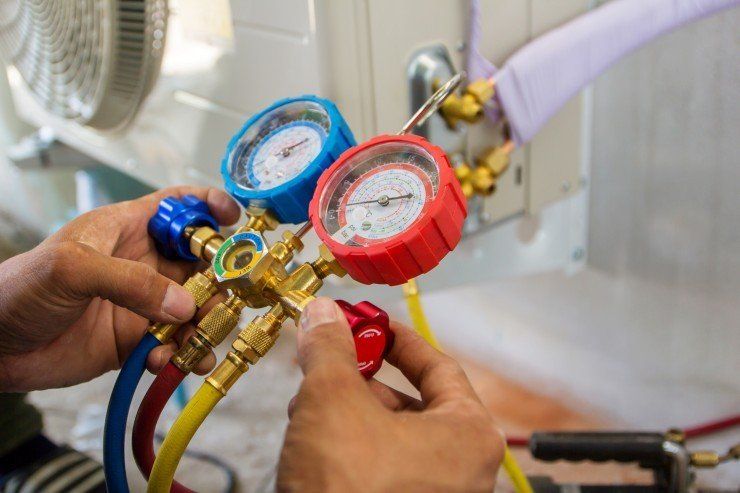
May 18, 2023
As the summer heat bears down on the charming city of New Bern, NC, having a reliable air conditioning system becomes crucial for staying comfortable indoors. However, like any mechanical equipment, air conditioners can experience issues that may hinder their performance. In this article, the Scott Plumbing & Heating Co team will explore the top air conditioning issues faced by residents of New Bern and provide some troubleshooting tips to help you tackle them effectively. Frequent Cycling Frequent cycling, or short cycling, occurs when the air conditioner turns on and off more frequently than necessary. This can lead to reduced energy efficiency and premature wear and tear on the system. Short cycling can be caused by a variety of factors, including a dirty or clogged air filter, refrigerant leaks, faulty thermostats, or improper system sizing. Start by checking and cleaning or replacing the air filters, ensuring they are not obstructed. If the issue persists, consult with the Scott Plumbing & Heating Co team to diagnose and resolve the problem effectively. Electrical Issues Electrical problems can pose a significant risk to both the performance of your air conditioner and your home's safety. If you experience frequent tripping of circuit breakers when the AC is running or notice flickering lights, it could be an indication of an electrical issue. Faulty wiring, overloaded circuits, or a malfunctioning capacitor may be the root cause. It is crucial to address electrical issues promptly and seek assistance from a licensed HVAC technician to ensure safety and prevent further damage to the system. Insufficient Cooling Insufficient cooling is a common problem faced by homeowners in New Bern. If you find that your AC system is not providing the desired cooling, there are a few potential culprits to consider. Start by checking and cleaning or replacing the air filters. Clogged filters restrict airflow, reducing the system's efficiency. Additionally, ensure that the thermostat is set to the desired temperature and is functioning correctly. If the problem persists, it may be a sign of a refrigerant leak, compressor malfunction, or an issue with the ductwork. In such cases, it is advisable to contact a professional HVAC contract like the Scott Plumbing & Heating Co team to diagnose and address the underlying problem. A well-functioning air conditioning system is essential for New Bern residents to beat the heat and enjoy a comfortable indoor environment during the summer months. By being aware of the common air conditioning issues and employing effective troubleshooting techniques, homeowners can tackle problems promptly and seek professional help when needed. Remember to perform regular maintenance, keep the filters clean, and promptly address any concerns to ensure your AC system operates efficiently throughout the season. Stay cool and enjoy the best of what New Bern has to offer, even during the hottest days of summer! To learn more about our air conditioning services, check out our service page or call the Scott Plumbing & Heating Co team today!

April 20, 2023
New Bern, NC is known for its hot and humid summers, which means that air conditioning is a necessity for many residents. However, simply having an AC unit installed is not enough to ensure that it will function properly and efficiently for years to come. Regular AC maintenance is necessary to keep the unit running at its best and to prevent costly repairs and replacements down the road. One of the main benefits of AC maintenance is improved energy efficiency. When an AC unit is not properly maintained, it can become less efficient over time, resulting in higher energy bills. Regular maintenance, such as cleaning or replacing filters, lubricating moving parts, and checking refrigerant levels, can help the unit run more efficiently and use less energy, ultimately saving homeowners money on their energy bills. Another benefit of AC maintenance is improved indoor air quality. Over time, an AC unit can accumulate dirt, dust, and other debris that can circulate throughout the home and cause respiratory problems. Regular maintenance can help ensure that the unit is clean and functioning properly, which can improve indoor air quality and the overall health of residents. Regular AC maintenance can also prolong the lifespan of the unit. By catching small issues before they turn into major problems, homeowners can avoid costly repairs and replacements. Additionally, regular maintenance can help prevent breakdowns during the hottest months of the year, when AC units are working their hardest. Finally, regular AC maintenance can give homeowners peace of mind. Knowing that their unit is well-maintained and functioning properly can provide reassurance that their home will remain comfortable and cool during the summer months. In conclusion, AC maintenance is essential for homeowners in New Bern, NC to keep their units running efficiently, improve indoor air quality, prolong the lifespan of the unit, and provide peace of mind. Homeowners should consider scheduling regular maintenance with a professional AC technician from the Scott Plumbing & Heating Co team to ensure that their units are well-maintained and functioning at their best. To learn more about our air conditioning services, check out our service page today!
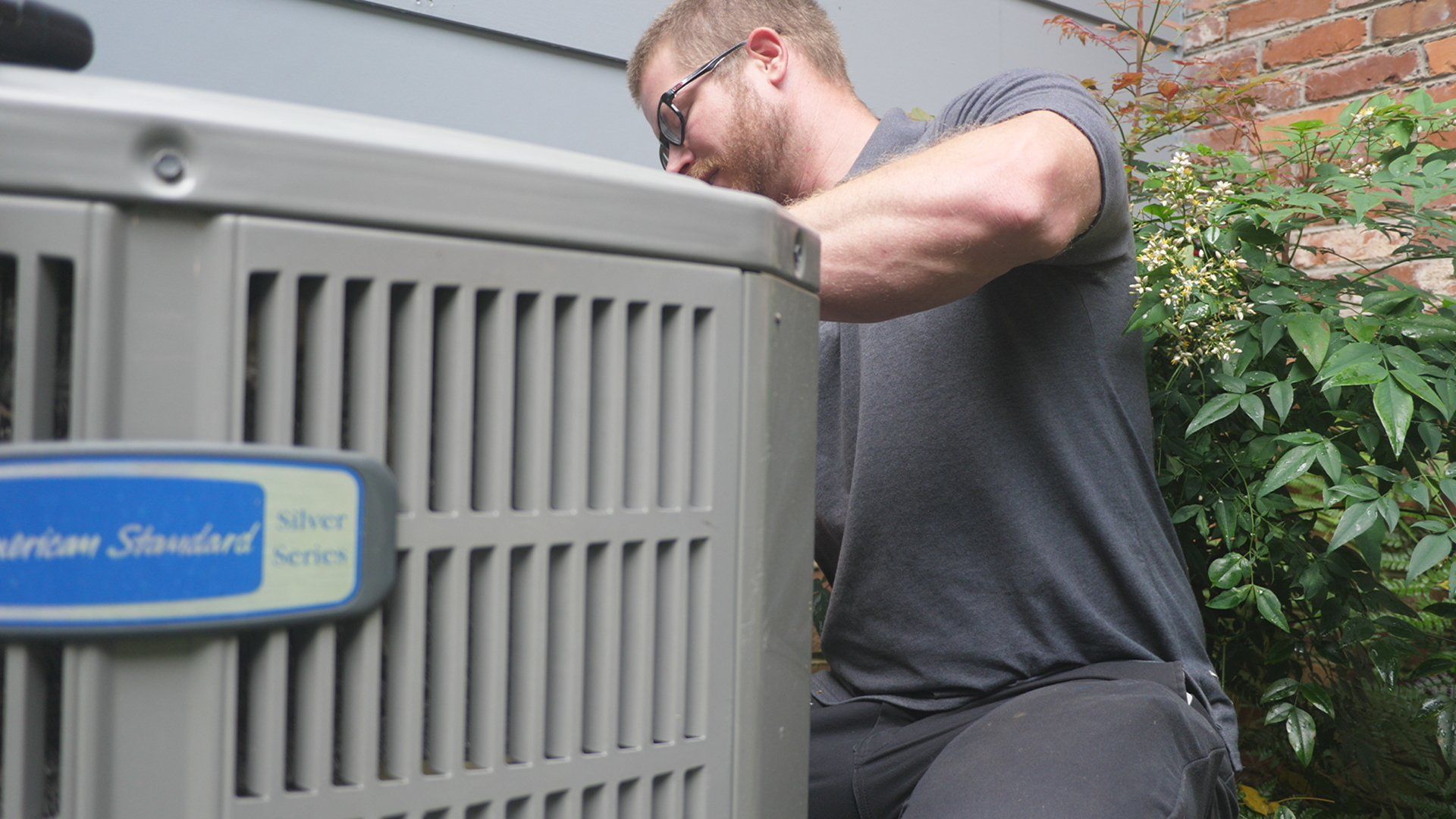
March 21, 2023
For homeowners who are in need of a brand new air conditioning unit, it’s important to consider the timing of your AC install. While there isn’t a perfect time to replace your cooling system, there are more favorable times than others and it’s wise to take them into consideration. At Scott Plumbing & Heating Co, we recommend customers planning an air conditioning replacement to schedule their appointment in the early springtime. Keep reading below to learn about the benefits of replacing your New Bern, NC home AC unit in the spring. Beat the Summer Rush It’s no surprise that the summer months here in New Bern, NC are the most hectic and busy for HVAC contractors. If you know that your AC unit needs to be replaced, don’t wait until the summer rush. Have your cooling system replaced and installed in the spring time so your HVAC contractor can make it work around your schedule, not the other way around. Increase Energy Efficiency If your AC unit is 10+ years old and not performing the way you want it to, it’s time to replace it. An older air conditioning unit requires a lot more energy to cool your New Bern, NC home than a brand new AC unit. With newer technology and energy efficient AC units, you can greatly increase your energy efficiency this summer by replacing your cooling system in the spring time before the heat and humidity arrives. Improve New Bern, NC Home Comfort Finally, replacing your AC unit in the spring time will greatly improve your New Bern, NC home comfort this summer. We are no strangers to the heat and humidity here and it’s important to have a reliable air conditioning system to keep you cool and comfortable all summer long. To learn about some of the air conditioners we carry and install here at Scott Plumbing & Heating Co, check out our products page today!

February 28, 2023
You don’t have to live with unhealthy air inside of your New Bern, NC home. Whether the air always feels stuffy or the moisture levels never seem balanced, there are tips and tricks you can implement to improve your home indoor air quality. Fortunately for you, the Scott Plumbing & Heating Co team is here to help. Keep reading below to learn about some of our top indoor air quality tips to keep you and your family breathing easily all spring long. High-efficiency filters: You can get a high-quality filtration system installed in your HVAC unit to sanitize the air. HEPA filters and other high-efficiency purification systems can get rid of viruses and bacteria in the atmosphere. Consult with one of the experts here at Scott Plumbing & Heating Co about if a high-efficiency filter can accommodate your current system or if you would need to invest in a portable air purifier. Ultraviolet (UV) light and ionization technology: Some air purifiers and other cleaning products feature UV light and ionization that eliminates viruses. These devices go inside your HVAC system to get rid of germs inside the ductwork before they can go into your living space. Give our New Bern, NC office a call today to learn about our indoor air quality products or check out our products page . Increase ventilation: Making sure your home has adequate airflow is a simple way to reduce your risk of contracting an illness. Besides using your air conditioner, you could also open the windows throughout the house and run exhaust fans while in the kitchen and bathroom. The fan in your HVAC system also activates the air filtration system you have installed. If you want to learn more about how to improve your New Bern, NC home indoor air quality, give the Scott Plumbing & Heating Co a call today! We are always happy to help our customers with whatever heating and air conditioning service need they may have.
Honeywell 16kW Home Generator
- Precision Power Technology delivers best-in-class power quality with less than 5 percent total harmonic distortion for clean, smooth operation of sensitive electronics and appliances.
- Tough, Durable All-Aluminum Enclosures
- Generac's G-Force Engine is a purpose-built, pressure-lubricated engine capable of handling the rigors of generator use, resulting in power thats more reliable and requires less routine maintenance than any competitive engine.
- WhisperCheckTM Self-Test Mode runs at a lower RPM for a five or twelve minute test, making generators significantly quieter than other brands while consuming less fuel.
- Smart, User-Friendly Controls
- Mobile Link Remote Monitoring allows you to monitor the status of your generator from anywhere in the world using a smartphone, tablet, or PC.
- Transfer Switch Options - Honeywell Sync Smart Transfer Switch: Utilizing digital power management, it allows for coverage of two air conditioners without additional components and up to whole house coverage.
Honeywell 5,500 Watt Portable Gas Powered Generator
- Reliable 389cc OHV engine with cast iron cylinders and low-oil shutdown.
- Generator engine provides 5500 continuous watts and 6875 maximum watts.
- 9 hour run time at 50% load means you can sleep through the night knowing you have power.
- User-friendly control panel with conveniently placed controls.
- At-a-glance operating graphics for quick starting reference.
- Includes the first bottle of engine oil and funnel, battery included with electric start models.
- Residential - 3 year limited warranty, Commercial - 1 year limited warranty.
Honeywell 22kW Home Generator (Air-Cooled)
- Precision Power™ Technology delivers best-in-class power quality with less than 5 percent total harmonic distortion for clean, smooth operation of sensitive electronics and appliances.'
- Tough, Durable All-Aluminum Enclosures
- Generac's G-Force Engine is a purpose-built, pressure-lubricated engine capable of handling the rigors of generator use, resulting in power that's more reliable. It also requires less routine maintenance than any competitive engine.
- WhisperCheck™ Self-Test Mode runs at a lower RPM for a five or twelve minute test, making generators significantly quieter than other brands while consuming less fuel.
- Smart, User-Friendly Controls
- Mobile Link Remote Monitoring allows you to monitor the status of your generator from anywhere in the world using a smartphone, tablet, or PC.
- Transfer Switch Options - Honeywell Sync Smart Transfer Switch: Utilizing digital power management, it allows for coverage of two air conditioners without additional components and up to whole house coverage.
Do You Have Any Heating or A/C Needs We Can Help With?
Call Scott Plumbing & Heating, Co. Inc. today for a Free estimate, for all your plumbing, heating and cooling needs.


